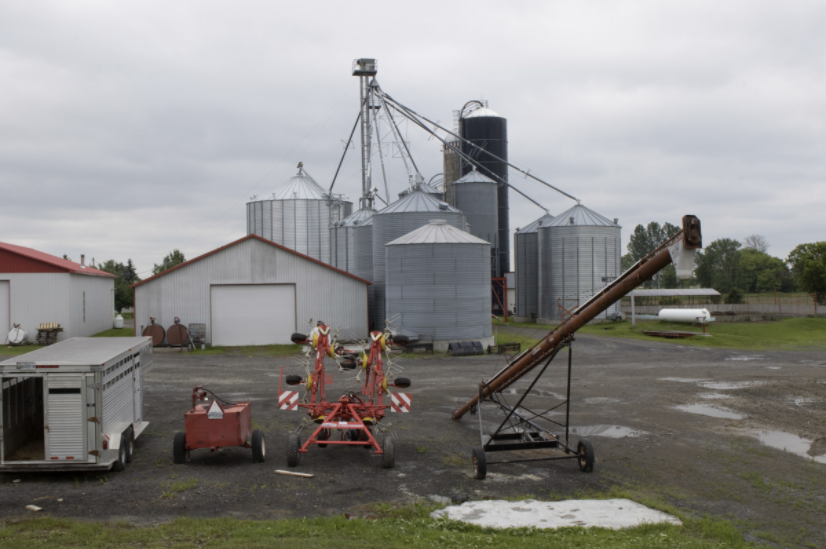I do not wish to transfer an operation which has a low chance to succeed,” wrote a farm survey respondent recently.
This mindset is the reality of a farmer who has lost hope. Without hope and a good cash flow, you are doomed. So let’s look at what you can control and think about for passing on the farm to the next generation.
Is it going to be a blessing or a curse?
My colleagues in business transition services at BDO, Brent VanParys and Brian Huck, have drilled down the essence of this question to risk, choice and opportunity.
Risk
When things are “not predictable,” you have to manage risk. The risk I deal with is the family system, the clarity of expectations, certainty of timelines of agreements and a commitment to act on the family’s values and vision for the farm. This is big-picture thinking.
VanParys and Huck are experts in finding strategies to meet the challenges of risk in the business circle. For example, they can help the farm that needs to be more profitable, support more than one family and increase profit and efficiency.
Choice
After dealing with strategies to manage risk, you also want to be able to enact the choices you make. People who are highly stressed do not feel they have choice. Choice is also limited when there is no profit, tight margins and lack of cash flow to service debt. Again, the reality check is seeking out options for improvement of revenue or choosing to liquidate assets. You need to hire farm management advisers to assess improving your financial state or face the facts of poor debt capacity.
Your personal wealth bubble is also a choice. Have you put all cash back into the farm over the years and have no “retirement funds” other than selling pieces of the farm business? Sadly, this is the case for many people I meet.
Having a low chance of succeeding sounds hopeless. What is your definition of success? My definition of finding fairness in farm transition is helping everyone be successful. Helping the non-farm heirs is workable when you can draw funds from your personal wealth and leave farm assets for the business successor to grow more wealth.
Many cash-strapped farmers want to please the legacy expectations of their grandparents and continue the farm to the next generation, just to say that it continues on as granddad had hoped it would. This becomes foolish thinking when young farmers are working as slaves with “below-minimum wage compensation” all because they want to give their children a chance to farm. Newsflash: You need a decent income to support a family. You also need disposable income to service debt.
You can use your agricultural skills and love of the land to be a professional farmworker for a farm that pays well, gives benefits and may offer a joint venture opportunity to you, even employee share option plans. The burden is being expected to farm even when it threatens the health of your marriage, your own health and the future financial opportunities for your children. Where is it written that you are a failure if you leave a non-profitable business to be compensated well for your skills and passion?
Opportunity
The blessing comes when all parties, all generations are aligned with the vision and the values of the family. This is like starting at the top of a huge funnel, gathering the hopes and dreams of each generation on the farm and those who have left the farm for other careers.
You work on the business plan for the farm based on the skill sets of the team players, the financial balance sheets and work out strategies to meet each challenge. As the ideas flow down through the funnel, then you look to tax considerations and make the best plans for the year based on current rules and regulations, using the wisdom of tax specialists who have seen many different farm scenarios and can help you figure out opportunities. Tax is not at the top of the plan; it’s more towards the end.
The risk is not acting. Succession planning is about the transfer of labour (well-paid), management (timely transition based on skill, not birth order) and ownership (which can be done in stages).
If you are buying into the line, “You can’t change people who don’t want to change,” then you likely already have your answer. It’s time to choose another farm or agricultural business to share your skill set with.
Procrastination and conflict avoidance are killing agriculture. Succession planning is not estate planning. When you make a will, that does not mean you are going to die.
Young farmers need to do their research to find out how much debt their current personal net worth will service. Visit with various lenders to learn about the options. Be empowered by keeping track of your basic living needs, and stop buying fancy pickup trucks that don’t make you money. Figure out good debt versus poor debt choices.
Many farms are not selling farmland to fund the founder’s retirement. Land purchases are happening from non-family opportunities. Others are in joint ventures with non-family.
If you are the farmer who says, “I find this topic overwhelming because it is my retirement and our son’s future, and we want to do it right,” give your head a shake. Look at the challenges, create solutions, and go on the journey with great advisers. Stop being afraid of getting it wrong. Start researching, talking and acting. You can afford to have family meetings to get this going. ![]()
PHOTO: Photo by Mike Dixon.
Elaine Froese, CSP, CAFA, works with BDO across Canada. She is also on this transition journey with her farm family at Boissevain, Manitoba. Learn more at Elaine Froese.

-
Elaine Froese
- Certified Farm Family Coach
- Email Elaine Froese








